Empowering Leaders with AI Technology, Culture and Training
Exclusive insights from a closed-door roundtable conversation at UNLEASH World 2023.
Why You Should Care
In today's corporate landscape, the synergy between the C-suite and HR directors is pivotal. One challenge they face is comprehending the dynamics of the workforce.
Executives are drawing upon the latest research and innovative methodologies to understand the complex realm of employee experience, but there are gaps.
From measuring employee effectiveness to examining how AI impacts workplace efficiency, members of C-suites around the globe are searching for a way to create harmony within their organizations and empower leaders.
HR leaders gathered to navigate this disconnect between leaders and their employees during an exclusive, closed-door roundtable discussion at UNLEASH World 2023.
Using AI to Address the Gap Between Administrative and Personal Tasks
In a recent global study by Qualtrics, the findings shed light on the intriguing dynamics of AI’s acceptance in the workplace. It revealed that a significant majority, more than 60% of the respondents, expressed a willingness to embrace AI’s role in handling routine administrative tasks. However, this comfort level experienced a considerable dip, plummeting to less than 30%, when AI’s involvement was considered in addressing subjective and personal matters such as performance management and employee assessment. This divide highlights the complex challenge organizations face when integrating AI into their HR processes. It demonstrates the need for a delicate balance between harnessing the capabilities of AI and respecting the personal nature of certain aspects of employee management.
AI Creates Job Uncertainties for Employees
During the roundtable discussion, one participant stated a belief that AI’s integration will inevitably lead to the replacement of certain administrative tasks, ushering in a new era of efficiency. On the other hand, some see AI as a catalyst for innovation, contending that it will open fresh job opportunities, particularly within the domains of marketing and finance. The real challenge lies in addressing the valid concerns surrounding job security and adapting to the ever-changing employment landscape. Organizations must strive to provide a comprehensive solution that encompasses both the efficiencies AI can offer and the means to mitigate uncertainties and fears associated with these changes. Organizational leaders should remain transparent with their employees to ease nervousness surrounding the uncertainties of AI being used within companies.
Empowered Managers Will Use AI
Empowering managers to translate employee insights into actionable strategies is a formidable challenge. Often, the constant demands on their time hinder a manager’s capacity to analyze the immense data at their disposal. In this context, AI-powered tools come to the rescue, providing a solution by efficiently sifting through the data and rapidly surfacing the most vital and actionable information. What distinguishes these AI-enabled features from traditional engagement tools without AI is their capacity to expedite and enhance data analysis. The ability of AI to increase the speed and utility of data interpretation not only eases managers’ burdens but also ensures that organizations can respond more swiftly to the ever-evolving dynamics of the modern workforce.
Enhancing Workplace Culture
Harnessing the power of AI to analyze employee sentiment represents a transformative step for companies seeking to understand their internal dynamics. AI’s proficiency in surfacing sentiment and capturing valuable commentary serves as a window into the complexity of the workforce. This approach unveils the strengths and weaknesses within a company’s operational structure and employee relationships, offering interesting insights. Moreover, AI’s capability to attribute comments to specific performance scores empowers organizations to make informed decisions. These decisions can enhance individual and team performance through personalized coaching while cultivating a more positive and inclusive workplace culture. This synergy between AI technology and workforce insights is pivotal in steering organizations toward greater efficiency, harmony, and success.
Personalizing Training and Acknowledging Efforts
AI’s role extends beyond data analysis and decision-making; it plays a part in personalizing training and acknowledging the efforts of employees. Through tracking individual progress and identifying specific areas for improvement, AI tailors training programs to each employee’s unique needs and aspirations. This personalized approach not only enhances skill development but also fosters a sense of empowerment and engagement among employees, who feel that their growth and contributions are recognized and valued. In a world where ongoing learning and professional development are crucial, AI’s ability to provide tailored support becomes a key component in creating a more motivated and skillful workforce.
Using Employee Experience Surveys
Measuring the effectiveness of employee experience surveys is crucial in gauging the effectiveness of an organization’s workforce. The importance lies in crafting surveys that not only ask relevant questions but also can capture the emotional states of employees during significant events and day-to-day operations. Particularly in larger organizations where data tracking and accuracy pose challenges, the key is to prioritize the actionability of survey results. Employees today expect their voices to be heard and their feedback to translate into tangible, meaningful change within the organization. These surveys not only serve as a vital feedback mechanism but also reinforce the notion that an engaged and valued workforce is the root of a successful and adaptive organization.
Key Takeaways:
From navigating the balance between AI-driven efficiencies and personal employee management to addressing the uncertainties surrounding AI’s impact on job security, these conversations serve as a beacon for organizational leaders. The path forward involves empowering managers with AI tools, enhancing workplace culture, personalizing training, and prioritizing the actionability of employee experience surveys, all to foster an engaged and valued workforce. This journey towards a more harmonious corporate landscape is a testament to the innovation of today’s industry leaders.
Sign up to the UNLEASH Newsletter
Get the Editor’s picks of the week delivered straight to your inbox!

Marketing and Content Intern
A sophomore at the University of Nebraska-Lincoln, majoring in Journalism, Advertising, and Public Relations.

